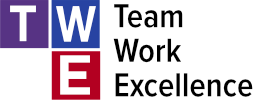|
When you fake appreciation of a shitty birthday gift, entertain an unexpected visitor with false enthusiasm, or even fake the ecstasy of a partner's touch, you have to sell a little piece of your soul. In the realm of work, we love to play pretend where it almost becomes second nature. We invest an absurd amount of time faking interest in things, convincing ourselves that we must be passionate about every single challenge that crosses our path. But hold up - This is work we're talking about. Let's be realistic and not go chasing rainbows, expecting passion to blossom from every task. The reality is that most of the work we do won't have immediate visible benefits for ourselves or the people we know, other than a paycheck and a line on our resumés. — It's simply a job. However, that doesn’t mean it’s not noble or lacks value, importance, or the need to care. It’s just that the connection to a larger purpose can sometimes feel abstract. So, here's a valuable tip: Commit yourself to your work and strive for excellence. Understand your role and how your efforts contribute to the broader value chain, know how your work impacts the next person in that chain. But don't burden yourself with the expectation of masking or pretending to be passionately invested in the bigger, macro task that benefits the organization. Let's chase that: Instead of faking it, latch onto the sweet, sweet joy and fulfilment you actually get from the act of working, using your talents, collaborating with others, and lending a helping hand to those in need, all while receiving recognition for your efforts. To do this you have to understand what you’re looking for in the transaction of work. And let’s face it, this isn’t something they teach in school. Sure, keep your focus on the bigger picture and the grand impact your company aims to make in the world. But let's also be real here, that concept can often feel distant and abstract. Right now, at this very moment, let's shift our attention to savouring today, maybe even the next hour. Embrace the challenges that come your way and relish in the opportunity to showcase your talents. Oh, and let's not forget the beauty of collaboration, my fellow humans. We are social creatures, pack animals even, and there's something special about finding pride within a pride. Even conflicts can be enjoyable if they lead to positive outcomes for everyone involved. Fully embrace your human moments— the fears, jeers and tears. The laughs, gaffs, and failed attempts – they are all the catalysts for personal growth and progress. If we genuinely want to find joy in our work or anything else in life, we need to tap into the essence of deriving satisfaction from our efforts. It seems like this sense of satisfaction is slipping away from us. We’re becoming rabid consumers - society and tech spoon-feeding us and constantly bombarding us with ready-made answers and solutions. Right now creativity is under threat as artificial intelligence starts to supplant what it means to be innovative. Escaping the clutches of helplessness and nihilism calls for the need to engage in creative thinking. It's about envisioning what's possible and then taking action to make it a reality. Paint a vision for yourself, and then get your ass in gear to make it happen. Don’t live vicariously through the lives you see on Instagram.
But we’re easily annoyed innovators: every generation is ticked off at the younger folks for not working hard enough and at the older crowd for grinding too damn much. It's a never-ending cycle of resentment. But we've been bamboozled into thinking that effort itself is the enemy. It's like those late-night ads for gimmicky kitchen gadgets—"There's gotta be a better way!" Sure, you can avoid the pains of effort—but there will be trade-offs. The truth is, the quality of our work almost always benefits when we genuinely care and show up with gusto and enthusiasm. Not doing so not only cheapens the outcome of our work but also diminishes our sense of contribution.
Starting today, pay attention to areas where minimizing effort is the focus. This doesn’t mean sacrificing quality or having a lower-quality work experience in the name of efficiency. Instead, consider how you and those you work with can apply themselves more effectively. Let's embrace the joy of working in a way that makes us feel good. It’s not about doing less - just doing it with genuine enjoyment. Let’s build cultures that access dedication, genuine care, and unwavering effort as a vital role, essential elements to build a sense of excellence and growth we achieve. In a world obsessed with shortcuts and quick fixes, let's not sell ourselves short. There is satisfaction to be found in the very brief journey you’ll have on this spinning cosmic marble, my friend. You can revel in the purpose and integrity that comes from doing good and meaningful work. Remember, your career is not just about work—it's about life. It's about living with intention, purpose, and a healthy dose of humor. So, learn to honor and apply your unique style, your unapologetic effort, and find purpose in everything you do, whether it’s work, play, or relationships. If you’re eager to become more fluent in who you are and how to derive joy from a career that matters to you - let’s get into it. In a world filled with expectations and societal pressures, it’s all too easy – and often even encouraged to lose sight of your authentic self. The idea of fake it ‘til you make it, and the social media mask is already a prerequisite for life online. But reality can be a noble ally or a cruel judge - toy with it, and eventually the universe will give you a slap. By accepting both the positive and negative aspects of who you are and adopting a growth mindset, you can unleash your true potential and create a life filled with purpose and fulfillment. Throughout this article, we'll explore insights from experts and thinkers who have navigated this path, providing you with the guidance and inspiration you need to embark on your journey of self-realization. Understanding the Real You: Unveiling Authenticity In a society that perpetually demands conformity, it takes courage to be true to yourself. The first step towards self-realization is understanding and embracing the real you. As Robert Fritz wisely said, "When you know what you want, and you want it badly enough, you'll find a way to get it." It's time to peel back the layers of masks and expectations that have accumulated over the years and discover your true desires, strengths, and weaknesses. Take a moment to reflect on your life and ask yourself: What do I truly want? What are my passions, my dreams, and my values? Embracing the real you, requires a deep sense of self-awareness. Take the time to explore your inner landscape, and don't be afraid to confront the aspects of yourself that you may have ignored or hidden away.  Remember, it is through embracing your authenticity that you can truly thrive. Achieving Clarity and Peace: The Power of a Growth Mindset On your journey of self-realization, achieving clarity and peace within yourself is of paramount importance. Carol Dweck, renowned for her research on mindset, introduces us to the concept of a growth mindset. As she wisely asserts, "Becoming is better than being." This perspective challenges the notion of fixed abilities and qualities and instead encourages us to view ourselves as capable of growth and transformation. So, how can you cultivate a growth mindset? Start by embracing challenges as opportunities for growth. Instead of shying away from difficulties, lean into them and see them as chances to develop new skills and expand your horizons. Embrace the power of "yet" - acknowledging that you may not have achieved something yet, but with dedication and effort, you can. This shift in mindset empowers you to approach life with curiosity, resilience, and a hunger for continuous learning. Embracing Reality: Liberating Yourself from Judgment To embark on the transformative journey of self-realization, you must confront reality head-on. As Richard Young, who coaches Olympians and champions of sport, teaches us, "The willingness to experience negative emotions may be the key to psychological flexibility and well-being." This means embracing the full spectrum of human emotions, including the uncomfortable ones. Instead of pushing them away or burying them deep within, allow yourself to feel and experience them fully. Embracing reality also involves accepting yourself unconditionally. Recognize that you are a complex being with strengths and weaknesses. Let go of the need for perfection and release the chains of self-judgment. Embrace the beauty of your imperfections, for they make you unique and human. When you stop fearing judgment, you create space for growth, acceptance, and self-compassion. Unleashing Your True Potential: Systems Thinking and Personal Mastery As you journey towards self-realization, it's essential, even crucial, to acknowledge the interconnectedness of your life and the world around you. Peter Senge's wisdom resonates deeply: "People don't resist change; they resist being changed." In other words, you have the power to shape your own destiny and create the life you desire. But how can you unleash your true potential? My approach with clients considers the structures of belief and identity, as well as the leverage and choice that surround us. Take a step back and examine the bigger picture. See how different aspects of your life are interconnected and influence one another. By understanding these complex relationships, you can identify leverage points and make intentional changes that have a profound impact. However, it's not just about understanding the systems around you; it's also about mastering yourself. Personal mastery, as Peter Senge advocates, is a lifelong journey of self-improvement and self-discovery. It's about honing your skills, developing your intuition, and aligning your actions with your authentic self. To embark on this journey of personal mastery, start by setting clear intentions and defining your goals. What do you want to achieve? Where do you see yourself in the future? By establishing a clear vision, you can create a roadmap that guides your actions. But personal mastery is not just about setting goals; it's about developing the habits and practices that support your growth. Cultivate a mindset of continuous learning and improvement. Seek out new knowledge, challenge your assumptions, and embrace feedback as an opportunity for growth.  Remember, personal mastery is a lifelong commitment to becoming the best version of yourself. There is much to learn, and experts are everywhere. I myself have served as a guide for hundreds. Ultimately, this journey is yours and yours alone. Take what resonates with you, adapt it to your unique circumstances, and forge your own path. Embrace the challenges, setbacks, and victories along the way, for they are all part of the transformative process. As you continue on this path, surround yourself with a supportive community of like-minded individuals. Seek out mentors, coaches, or friends who can offer guidance, accountability, and encouragement.  Remember, while the journey is yours alone - you are not alone on this journey. Truth and fluency bring confidence, courage, and an unwavering belief in your potential. Embrace the growth that is yours to choose. Celebrate your authenticity, and trust that nothing beats a life filled with purpose.
Pay attention to the quality of what you consume - and consume in moderation. Creating is the source of fulfillment and deep joy. The world is eagerly waiting for the unique gifts and talents only you can bring. Embrace the opportunity, embrace your authentic self, and let your light shine bright.
Episode Summary
Tim Sweet is joined by Julie Freedman-Smith once more to continue the conversation they started in the last episode. They delve deeper into how we can break ourselves out of inaction or malaise to start changing our lives. Every journey starts with a step, so what will push us into action? What will our first step be?
Episode Summary
Tim Sweet welcomes Julie Freedman Smith back to the show. Julie, the creator and founder of Parent-Break online community, and Tim have a discussion about the feeling pervading people’s lives and work-lives today. They break down why there is a sense of malaise and where the fear stems from.
Episode Summary
Tim Sweet is joined by Richard Young, performance clarity expert and author of Simplify, to talk about Richard’s three systemic keys that set repeated medalists apart from the rest. Richard’s insight on sustained performance isn’t solely applicable to sport, but to every aspect of life in which we want to excel.
Episode Summary
Tim Sweet welcomes Rita Ernst, Positivity Influencer and Consultant, back to the show to discuss the differences between generational education and how school focus has shifted from individualism to teamwork. How does that shift translate into business preparedness? In talking about this, Tim and Rita address the fundamental occupational processes they both respect and the order in which necessary change must be addressed.
Episode Summary
Rita Ernst, Positivity Influencer and Consultant, joins Tim Sweet on the show to talk about big changes in business. When exactly does a business go from thriving to struggling, and why? Rita’s hint is that it happens far before the impact is seen in the financial bottom line. She and Tim unpack the signs. Rita identifies how a change in work habits is the first sign of a business in the midst of change. She illustrates this with examples from COVID, where organizations all buckled down and gave their all during the first years but now are experiencing a push back, a difference in how people are interacting with customers, work that was always on time before now being unfinished. This is where righting the business should start, but businesses wait until they see it in the bottom line to call in a consultant like Rita or Tim. Tim Sweet and guest Rita Ernst dissect how an individual can right the course of a business going through big change. If everyone is afraid to say the hard truths to the boss, how will change begin? It’s not about being toxic, it’s about showing up with an honest desire to help. Positivity is the key ingredient in Rita’s book Show Up Positive and she discusses specific lessons from her book with Tim. It’s a conversation every level of employee in a business needs to hear.
Episode Summary
Tim Sweet welcomes guest Paul Farmer of Mentoris to the show to talk about feelings. Specifically, how feelings apply to business and leadership. Paul works to get leaders to understand exactly how the feeling of a purchase or investment drives consumers and employees far more than logic when you get to the heart of things. He and Tim break down how it works.
Episode Summary
In this fourth episode in our 4-part series, we talk about dealing with what has sat too long in the back of life's fridge. Let's explore how to get moving and keep moving. Build momentum back into your home and work.
Episode Summary
In this third episode, of this 4-part series, we continue to explore what has sat too long in the back of life's fridge; what might be festering and what can you do about it. We talk about OVERWHELM and how to create space so you can create space.
Episode Summary
In episode two of the 4-part series, we continue to explore what has sat too long in the back of life's fridge; what might be festering and what can you do about it.
Episode Summary
To kick off the SWEET ON LEADERSHIP Podcast, I am joined by Julie Freedman-Smith to talk about the stress and languish you may be feeling at home and at work. To grow and stay current, change is inevitable, especially in the rapidly evolving sectors of science, technology, engineering, and mathematics (STEM). To stay ahead of the leadership challenge we face in ever changing technology, globalization and workforce dynamics, it's not about constantly adding skills but transforming the way we think and operate. STEM leaders excel in learning and adapting, but the real key to sustained success lies in transformational thinking. In this blog post, we'll delve into this concept and the importance of strategic simplicity, language alignment, and performance well-being - insights from a recent conversation I had with Richard Young Phd, former olympic athlete and coach. By the end, you'll understand why the future of STEM leadership relies on simplifying, not complicating. You’ll further understand how these factors can be applied to foster a transformational, even seismic shift in the mindsets in STEM leaders wanting to increase their impact.
The Power of Transformational Thinking in STEM Let's face it - STEM industries are in a constant state of flux. A PwC survey revealed that 97% of tech industry CEOs consider innovation a top priority, with 61% planning to increase their innovation investments. But, are we focusing enough on the human element of this innovation? When businesses discuss transformation, they often look beyond current practices to create new solutions. For STEM leaders, innovation is an attractive approach. But this is not transformation, and there is a limited understanding what transformation truly entails. Transformation is not about adding more to the mix; it's about creating a fundamental shift of what it means to “be”. It is not building on what is already existing, it's about measured, intentional destruction and conscious reengineering. Compare this to an adaptive and additive approach - something STEM professionals do very well. Because it is a preference, STEM leaders are often very open to the idea of ‘transformation’ - but then try to accomplish it through a linear additive process. This is flawed; let’s discuss the alternative. Demystifying Transformation - a Fundamental Shift Richard Young's theory of strategic simplicity, language alignment, and performance well-being offers a roadmap for embedding transformational thinking in STEM leaders. Let's break down these components: Strategic Simplicity Strategic simplicity involves identifying your strategy down to its core elements and focusing on them. It's about understanding your organization's purpose, values, and goals, and aligning all efforts towards achieving them. Strategic simplicity helps teams stay focused on what is essential and avoid distractions that can lead to loss of time, energy, and resources. The benefits are significant, enabling leaders to stay agile and adapt to changes in technology, globalization, and workforce dynamics. By focusing on the core elements of their strategy, leaders can avoid getting dogmatic, and bogged down in the complexities of their roles, or the myths of their disciplines. It helps maintain clarity and direction and openness. Additionally, strategic simplicity helps leaders communicate their vision and goals to their team members, enabling them to align their efforts towards achieving shared goals by leveraging the most fundamental. When Steve Jobs rejoined Apple in 1997, he simplified their strategy to focus on user-friendliness and innovation. This move birthed the iPod, iPhone, and iPad - products that disrupted the tech industry. He simplified what market performance had to be. Language Alignment Creating a shared language and culture that bolster your strategy and goals is crucial. It's about using inclusive, empowering language to cultivate a culture that promotes growth and learning. Language alignment helps STEM leaders create a shared vision and culture that enables their teams to work towards shared goals. The importance of language alignment cannot be overstated. Quality of communication precedes quality of performance. When leaders use language that is unclear and confusing, it can lead to miscommunication and misunderstandings among team members. This can create a lack of trust and collaboration, hindering the team's ability to work towards shared goals. By creating a shared language and culture, leaders can foster an environment of transparency, trust, and collaboration, enabling their teams to work together effectively. Promoting Performance Well-being in Organizations Performance well-being refers to employees' physical, emotional, and mental health, which are essential for optimal performance. This involves creating a supportive and inclusive environment that promotes employee satisfaction, productivity, and creativity. Prioritizing well-being can foster a positive and productive work environment. But to help others, leaders need to also advocate for their own wellbeing. Professionally, nothing is more important to a good work-life balance, then finding a job that fits.
By focusing on the three questions and developing your skills in strategic simplicity, language alignment, and performance well-being, will help you become a consistent innovator and value creator as a STEM leader. Just like the notable leaders we've looked at, you can create a culture of success and growth within your organization while also taking care of yourself and your team. In Summary Transformational thinking is crucial in business, but particularly for linear and additive thinkers, such as STEM leaders who want to stay ahead of the game. By adopting Richard Young's theory of strategic simplicity, language alignment, and performance well-being and applying these practical strategies, you can foster a culture of innovation, create a positive work environment, and steer your organization towards success. A great framework for developing a transformational mindset! While STEM disciplines focus on additive and linear approaches, a leadership future in STEMis not about adding more skills or tasks to your plate, but transforming to lead others effectively. I'd love to hear about your experiences with transformational thinking in STEM leadership. Share your thoughts in the comments below! Are you ready for this transformation? As an impactful and effective leadership consultant, I offer personalized coaching in adopting transformational thinking and adapting Richard Young's sport theories into your business. If you're interested, don't hesitate to reach out. This could be the first step towards transforming your thinking and your organization.
 Credit: Chris Trevas Credit: Chris Trevas ON STAR WARS DAY: let's talk about Transformation and how it is necessary for any leader to grow as their influence increases. Just before Obi-Wan Kenobi died in Episode IV, he said, "If you strike me down, I shall become more powerful than you can possibly imagine." It is a powerful idea - through destruction, we can become more powerful. Obi-Wan's purposefulness endured, and his legacy and teachings would empower Luke, who followed. And that's exactly what transformation is all about. Just like Jedi Masters who achieved enlightenment and joined the force, leaders in business also go through a transformation to be able to inspire, empower, and lift up others. They have to destroy that which they were for something new. Nowhere is this more evident than when working with technical or academic experts. They've developed in specialized roles and environments - so taking the lead of people can seem like a galaxy far, far away. Finding success in a specific discipline, then being promoted into leadership can be a shock. When undersupported, it can lead to struggle, which leads to apathy and fear. It's a trip to the Dark Side many may take, and it unnecessarily risks the success of the organization. It can be avoided - but you need a guide. You need to forget all you know or think you know.  Credit: Kim Syberg www.artstation.com/kimsyberg Credit: Kim Syberg www.artstation.com/kimsyberg Don't be a Nerf Herder.
 Credit: PraytheReyAway Credit: PraytheReyAway Let go, Luke: To achieve transformation, leaders must learn to value themselves and make development intensely personal. As Yoda once said, "Do. Or do not. There is no try." Transformation is not an easy process. It requires hard work, dedication, and a willingness to learn and grow. It often requires an expert to present new ideas and perspectives. As Obi-Wan said, "Your eyes can deceive you, don't trust them." Leaders must be willing to question their own assumptions and beliefs to achieve true transformation. Transformation is a necessary process for leaders in business, just as it is for Jedi knights. It requires vigilance, dedication, and a willingness to learn and grow, then "The Force will be with you, always." May the Force be with you on your journey toward transformation and leadership success. #leader #leadership #maytheforce #starwarsday #obiwan #transformation #stem #accademic #maythe4thbewithyou Coming in Heavy: Why WestJet's decision to abandon April Fools' jokes is no laughing matter4/28/2023
As an organizational consultant and leadership coach, I can't help but have concern over WestJet's recent decision to forego its traditional April Fool joke in favour of a stern statement of responsibility. On April 1st, I received a mass email to: tim@teamworkexcellence.com  Furry Family Cabins on WestJet Furry Family Cabins on WestJet von Hoensbroech emphasized that I "deserve friendly, reliable, and affordable service every time you fly with us." Sure, but I don't believe this has to come at the cost of a light-hearted employee and more jovial flying experience. I understand why disgruntled travellers and shareholders want reassurance that they take operational and customer service issues seriously. But a flight infused with humour and lightheartedness can enhance the overall experience, build customer resilience, and even camaraderie with the staff - which can counter air travel's frequent and unforeseen stresses. As a proud Calgarian, it saddens me to see WestJet, a local company that was once known for its "employees/owner" culture, move even farther away from its roots of Western Pride, Hospitality and Irreverence that made it famous. While I understand the need for reliability and affordability, operational efficiency, humour, and lightheartedness are not mutually exclusive. Personal, positive vibes still are a competitive advantage in the airline industry. Empowering employees to have fun created the space to provide unique and enjoyable customer experiences is no small feat, and humour was a hallmark of WestJet's brand both inside and out. WestJet may survive by getting serious - but will it thrive again as a cherished Canadian brand if it equates delivering reliable and affordable service with being cold? And abandoning humour and levity could ultimately harm the employee experience and retention.  What they are giving up: "Furry Family" cabins for pets on their flights, launching a "SmartSeat" that could detect and respond to passengers' emotions and unveiling a "Flyre Festival" package that parodied the failed Fyre Festival. WestJet has always stood out from other airlines by embracing their humanity and not taking themselves too seriously. Take, for example, their April Fool's classics of the new "KargoKids" service in 2012 that promised to keep kids entertained in the cargo hold on long flights so parents could enjoy their flights. The modified baggage area would even include a kiddy feed trough to keep Junior happy. And in 2018, to become more Canadian and cut down on departure confusion, the airline announced it would switch to metric time. Now travellers could perform a simple conversion: "Let's say your flights leave at 5:42 p.m. (or 1742 on the 24-hour clock.) Take the 17 x 60 to get 1020, add-in the 42 to get 1062 and divide by 1.44 to get your new flight time: 737 Milliminutes. It's as simple as switching Fahrenheit to Celsius!" While some may consider these gags unnecessary, they showcase WestJet's culture to employees and travellers. And this levity carried on in the cabin, complimentary on every flight.
The meme of a WestJet flight attendant giving a hilarious preflight demo went viral worldwide. Studies have proven that allowing employees to have fun at work leads to increased engagement, productivity, and employee retention. A 2017 Great Place to Work Institute study found that companies with a positive and engaging workplace culture have higher levels of employee engagement and retention. So, what happens now that WestJet has decided to ditch its April Fool's jokes? It's unlikely that becoming more "serious" will help them overcome operational challenges... and with less emphasis on humour, this move could ultimately result in a less engaging customer experience and a less enjoyable workplace for employees. WestJet will take another step to become an average airline, failing to remain committed to that that differentiated it in a competitive marketplace. WestJet's decision to abandon its April Fool jokes is misguided. The airline is risking its brand, customer experience, and employee experience by moving away from this commitment to levity. Customers who have come to expect and enjoy WestJet's annual April Fool's jokes may be disappointed or perceive the company as losing its playful and customer-centric approach. Employees may lose creative expression and morale if the company eliminates this longstanding tradition. Other airline companies are ready to make this their calling card... so the decision to stop kidding around may carry a very un-funny risk of diluting WestJet's brand and corporate personality and losing one more differentiating factor in an unforgiving airline industry. What data pushed them to assume operational issues somehow conflicted with levity? This same thinking leads to the "Resting Work Face," where walking around looking serious or acting overworked makes employees seem busier or more indispensable. Ultimately this does little for the employee or the company. While providing friendly, reliable, and affordable service is essential, Profitable, reliable service can be achieved more effectively and sustainably when the fun and engaging culture that made WestJet a legendary Canadian brand is intact. I hope that CEO Hoensbroech realizes WestJet can be "serious fun" and chooses to keep the humour that made the company unique. Customer experience and employee engagement is no joke, and if you abandon the competitive advantage of humour, you are completely missing the punchline. Some decisions are tough. But covid is creating unique uncertainty about the future for nearly every decision we make. Wouldn’t it be great to know you are making high-quality decisions? As the weather cools, children return to schools, and the holiday season approaches, we will have to take a different approach to the mitigation of exposure risk than what we’ve experienced so far. If you’re finding it hard to make one or more decisions right now - it might be time to take a different, more structured approach. Years ago, I took a six-week course through Stanford University on SDG’s Decision Quality framework - this model sorts decision types by both frequency and value: When viewed through this lens, it is clear that covid-19 and related exposure risks have changed routine, benign, automatic decisions into major “Strategic Decisions” with non-trivial implications. 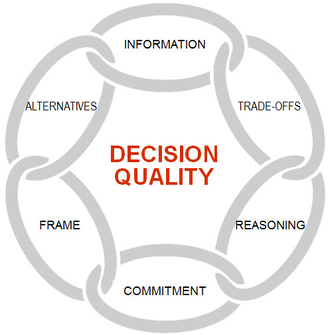 This year our daughter is entering high school, which is an important milestone in any year, but now we’re facing so many more complicating factors. So our family has found it helpful to use a structured approach to making decisions around back-to-school for Grace, Aubrey and John, and in managing our approach to other major covid-related decisions. The Decision Quality model considers six elements when making important, strategic, high-quality decisions:
While making decisions is necessary, how we discuss those decisions is equally important. When we disagree with someone important in our lives on issues that challenge our core values, it can be tempting to prioritize merely reaching an agreement. To maintain a healthy working relationship, openness and trust, and reach high-quality, collaborative decisions, we need to ensure we are listening and seeing each other along the way. The journey is as important as the destination - quick agreement is damaging if it comes at the cost of belonging and security. It’s equally important to realize that a well-made decision (making the best decision with the information you have at the time) can still have disappointing outcomes. Covid-19 continually forces us to choose between several sub-optimal options. Each choice carries risks and none guarantee a positive outcome, so we are unlikely to be completely satisfied with whatever decision we make.
Consider the six attributes of decision quality, stay true to your core values, and work on building bridges of validation with those you care about. If you’d like help finding perspective and balance between the roles you fill in your life and work, we’re here to help. Book a free consultation. If you've found this useful, you'd like the TWEekly CLICK TO JOIN our tribe of TWEekly Leadership Geeks. You know you're a geek if you're fully committed (body and soul) to honing your craft as a leader. P.S. We don't spam - we're good people. By Michael Fiss, Kate Bourque and Tim Sweet Workers are now returning to offices and bringing with them a wide variety of opinions and sensitivities when it comes to wearing masks. Meanwhile, more and more jurisdictions and businesses are implementing mandatory mask-wearing laws and policies. Mandatory masking has become an issue of personal identity and polarizing values. Unchecked, this conflict threatens to unravel corporate unity and undermine cultures of safety. How will your organization respond in a way that is credible and consistent with your values and established safety culture? After reading this you will have five data points and four behaviours you can use to inspire a safe, consistent approach to phased reopening.
Staying calm is good. Carrying on in the middle of a crisis - not so much. When it began to gain prominence in North America, I, like everyone else though “Keep Calm and Carry On” was cool. I didn’t regard it as a mind-blowing advice, but it had a retro look and some kitsch to it. Now… three years on, I’m telling clients to think twice before adopting "Keep Calm" when designing change and improvement slogans. At best it's overused... at worst it's harmful and counter productive. Leave it out of your HR and Change Management campaigns – and, do not promote it as a virtuous leadership behaviour. An Opiate for the Masses“Keep Calm and Blankity Blank” statements are being overused by shortsighted leaders trying to forward their own agendas, to the point of nausea. The meme is applied like a salve to “sooth” the masses while asking them to do something. The medium is the message, and this medium implies it should be done without question – unfairly making it an issue of loyalty and stoicism.
Do you have employees that carry stress home? Their lives literally depend on the organizational culture and leadership style you choose to adopt. You can make a huge difference to the happiness and balance in your peoples' lives. Do you have employees that thrive at home and at work? Their lives literally depend on healthy organizational behaviour and company culture on the job. Want more from your career and life?
It was great to hear Dr. Mohan S. Sodhi speak at the Alliance Pipeline Seminar "Supply Chain 3.0 and the Search for Performance" on Friday.
Fantastic to meet and have conversations with Professor Sodhi, my friend (and Co-Author) Jaydeep Balakrishnan, Shawn Baker, Fernando Torres and many more. Dr. Sodhi (whose work you'll find in the Sloan management review and the Harvard Business Review) nailed home the point that organizations can incur an incredible loss if they fail to deal with supply chain challenges at the appropriate 'level' (operational, supply chain, social.) The analogs presented demonstrated the effect of failing to have an appropriate response when a threat materializes. I left with the feeling that this risk will become increasingly relevant if organizations go insular on increasingly public social issues, or go to social media to justify poor internal decisions or quality issues. We've seen disastrous of this mismatch when Airlines, Automobile Manufacturers, Technology and Government deal with mistakes that harm stakeholders. I found the learnings extended far beyond supply chain; being equally valuable for governance and regulatory, and safety teams to consider. A big thanks to Alliance and the Haskayne School of Business CASL for putting on this excellent series. |
Videos, Articles, Tools and More for Leaders in BusinessSET UP FOR SUCCESS?
|
|
© TeamWorkExcellence 2023. All rights reserved.
|
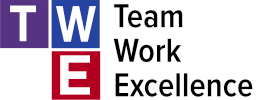








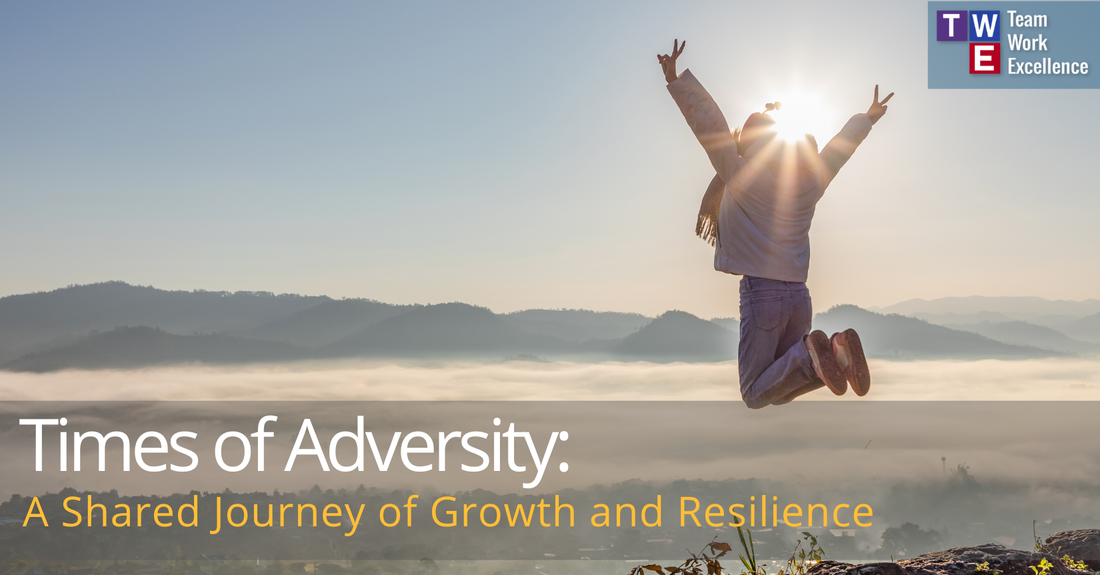


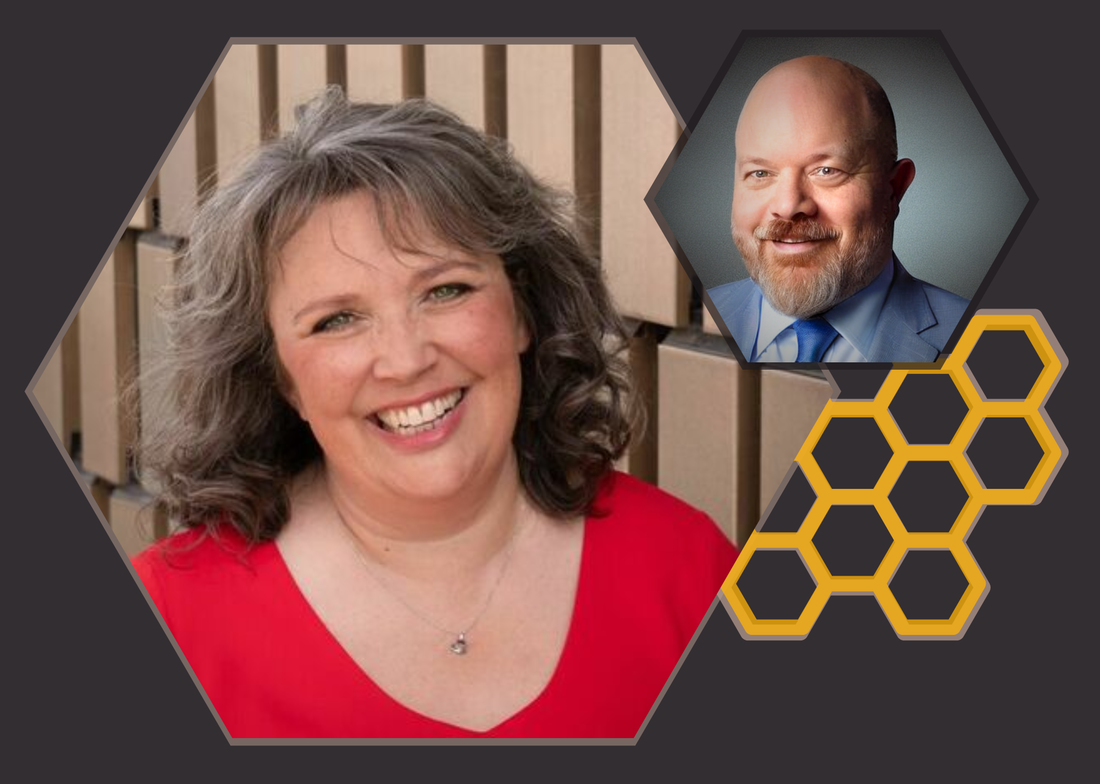


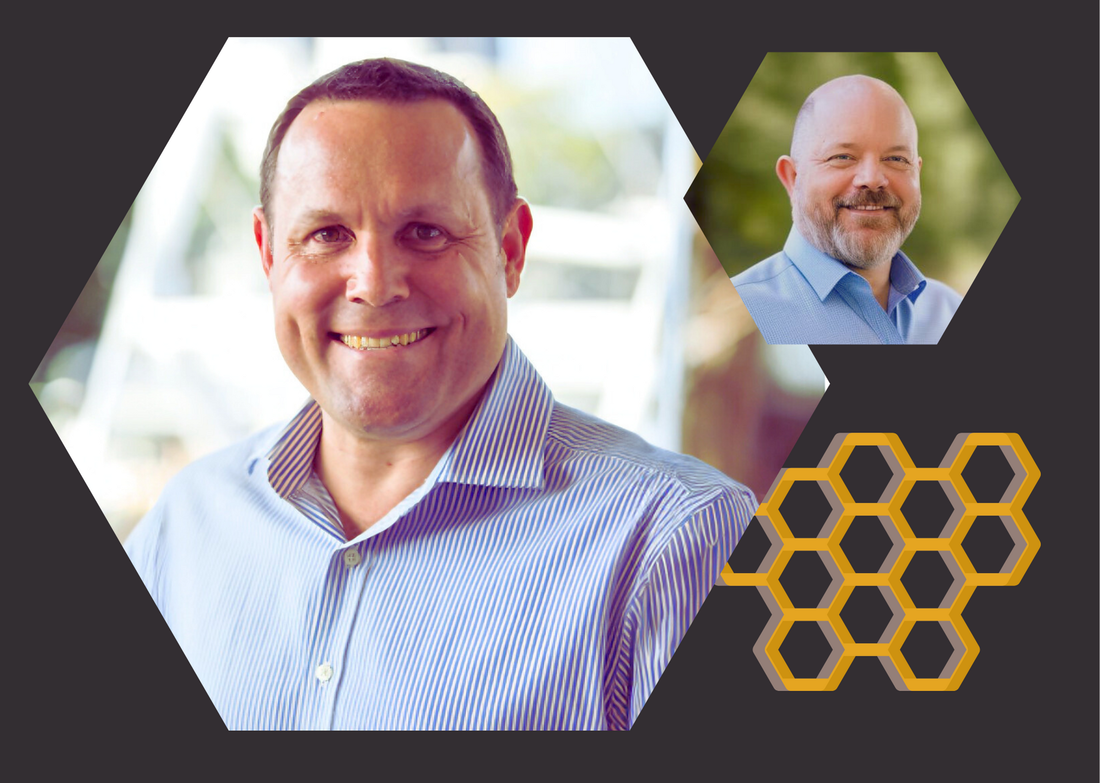







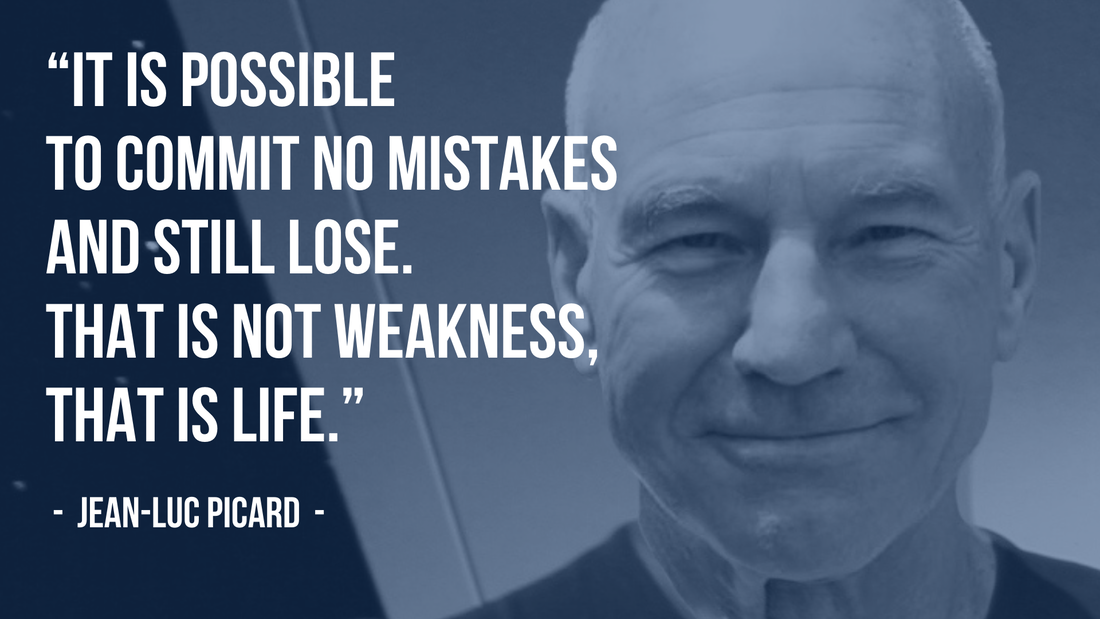
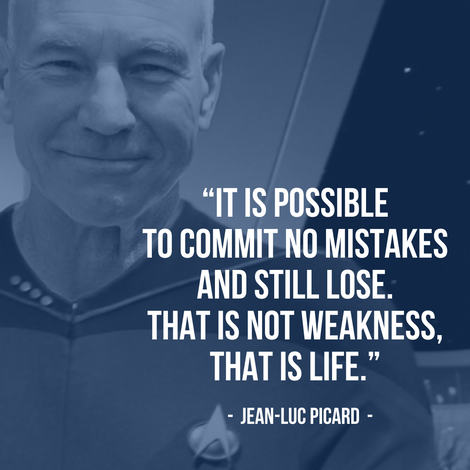


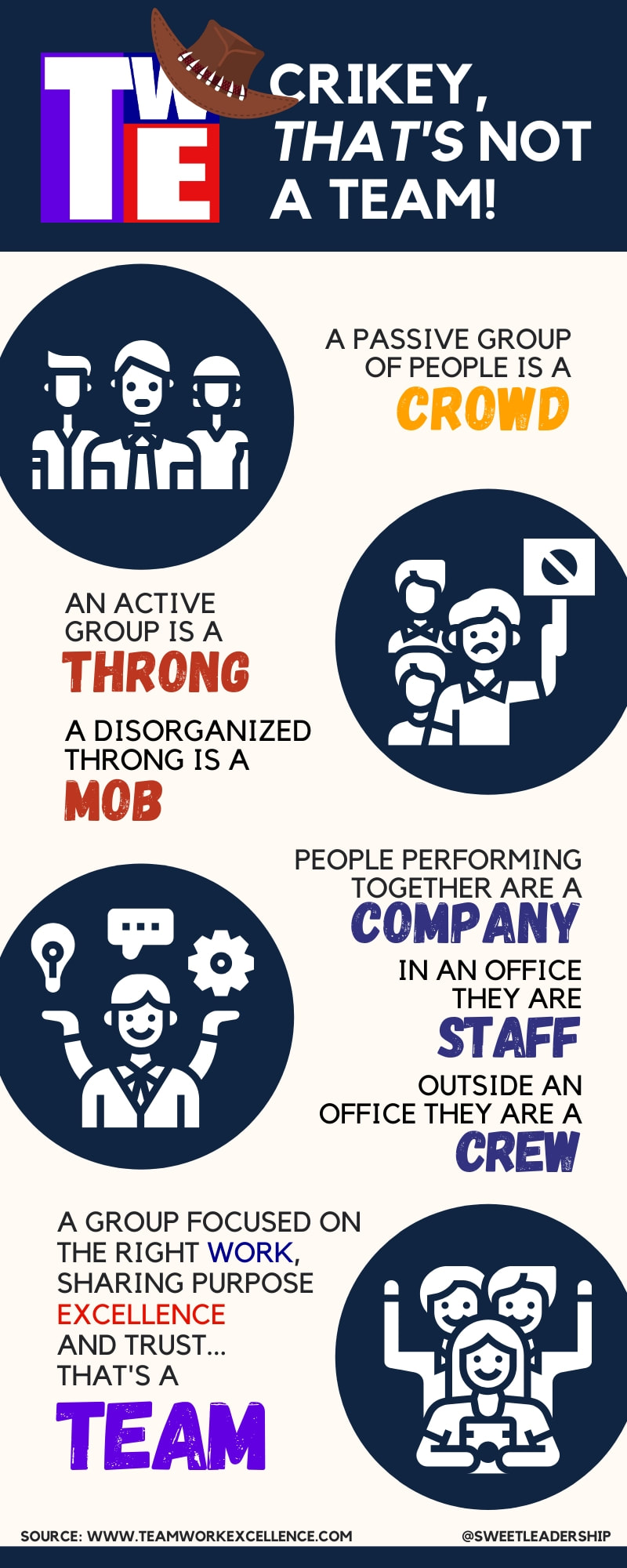

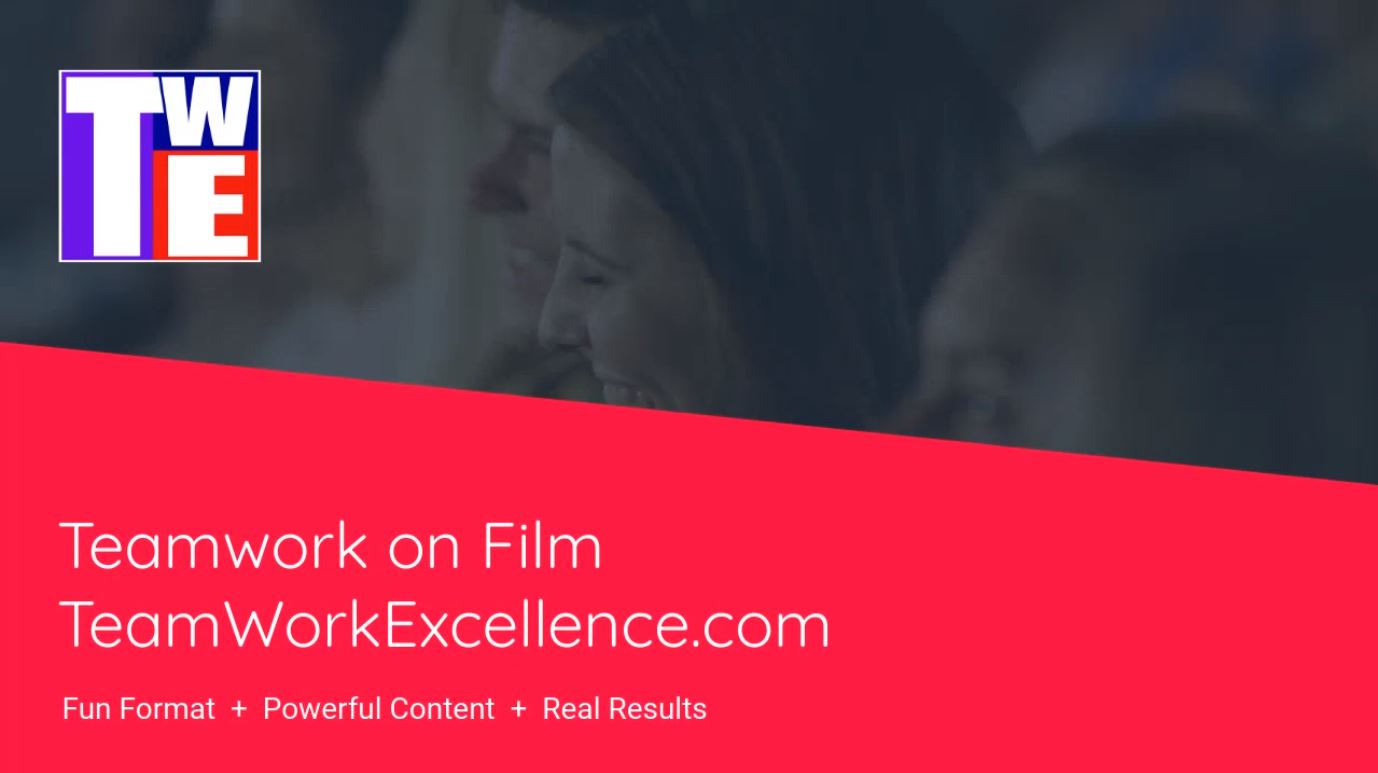

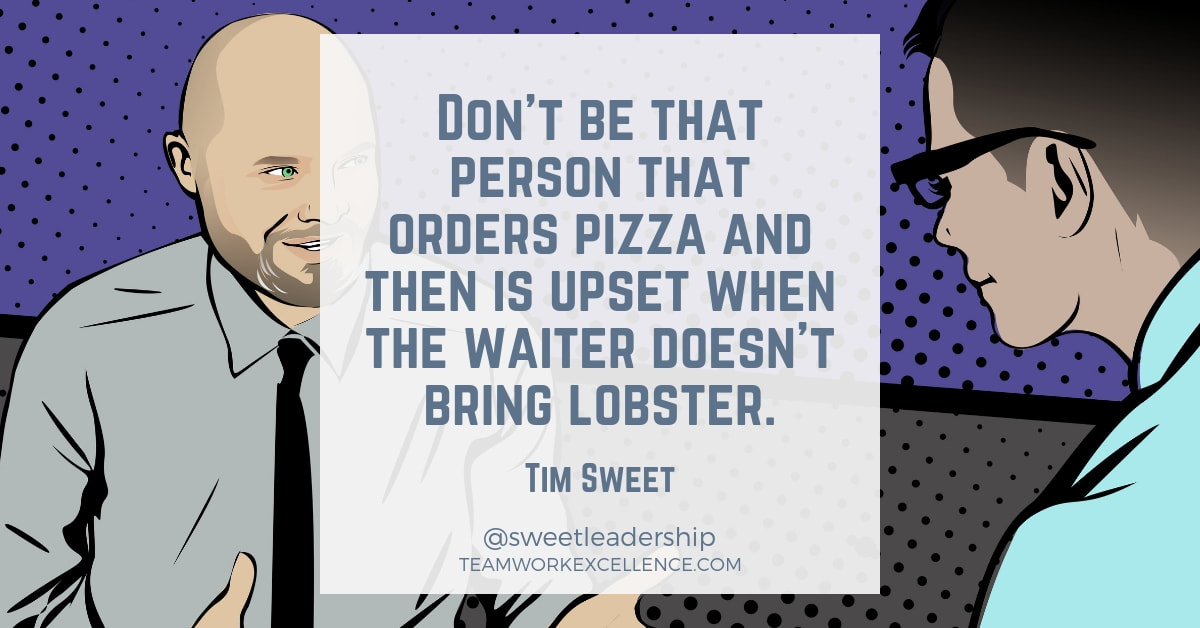

 RSS Feed
RSS Feed
